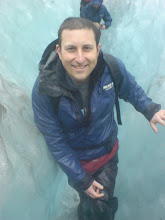I spent most of the morning just walking around the old town with it's small streets, little shops, and quiet alleyways - there's a real buzz to the place. And once you get away from the main square, you get into the real Lhasa.
Lhasa Old Town:

Most of the shops in the main square, and the street leading to it, are owned by Han Chinese, as (I've been told) the government offers the Han Chinese tax incentives to move to Tibet, the thinking being that it will dilute the Tibetan culture.
Back at the main square, I forked out the 85 Yuan (about eight pounds fifty) to get into the Johkar Monastery, just for something to do (the guide had told us it wasn't worth seeing), and ended up really enjoying it. It's one of my all time favourites, and given the festival is over, it was really peaceful.
You can head up to the roof for views - although the views aren't as good as those from the New Mandala Restaurant – which also does really great curries.
The roof of the Johkar Temple:



Buddhas in the process of being painted:

Corridor in the temple:

Painting in the temple:

Military in the main square:

The temple has an inner courtyard where you can spin the pray wheels, and as I'm walking around this really great Chinese guy stops me and explains that I was going in the wrong direction (is that anti-karma?), and then wandered around with me while I turned the wheels in the right direction.

From the inner courtyard you can go into the main temple (bizarrely labelled as the “Inner Cathedral" which has loads of interesting little temples inside.
Photo taking is banned so there are no pics...
After a rather good cup of coffee and slice of cake, I headed off to do a Kora of the Potala Palace, and spun the pray wheels on the way round – and there are rather a lot as I discovered. There's a nice park behind the Palace and after sitting around for a while enjoying the day, I headed back to meet Antonia and Brittny for dinner – no curry this time :-)
While we were eating dinner, two armoured patrol vehicles with huge machine guns on the roof and about twenty soldiers in each one drove through the streets. It felt very threatening. It really does feel like a country that's been occupied by a hostile army who are trying to control the people. A country under siege.
Every Tibetan I talked to talked of their desire for a free Tibet, or a compromise in which Tibet is in China but run under a different system like Hong Kong. The government is prepared to offer this (which is encouraging), but just for the Lhasa valley, which the people don't want as they say they want freedom for all Tibetans – not just those who live in Lhasa.
There's a lot of anger, particualarly among the young people, in the way they are being treated, as they feel that all the opportunities are given to the Han Chinese. Whether this is true or not I don't know – but that's what I was told (but there's always three sides to every story: yours, mine, and the truth). But the strength of feeling really surprised me.
Which is incredibly sad – as it's one of the most beautiful places on earth - and the people live an amazing life in harmony with the landscape around them. It feels that much of this is being swept away by an oppressive external force.
On reflection – I had some of the best moments of my life in Tibet. The train ride is truly a trip of a lifetime, and to see Lhasa and the Potala Palace felt like a privilege. To stand and see Everest in the moonlight, and to walk up to Everest Base Camp while the sun rose on Everest are moments I'll never forget.
But there's a sad side to Tibet. The heavy military presence. The overly aggressive approach of the army and police. The heavily armoured vehicles with machine guns on the roof patrolling the streets. The conversations where young Tibetans are asking for freedom, and the opportunitues for their future which should go with it. And perhaps saddest of all – the missing monks.
Paradise, it seems, has a dark side.
And I came away hoping that one day the Tibetans will get the freedom they so desperately long for.

No comments:
Post a Comment